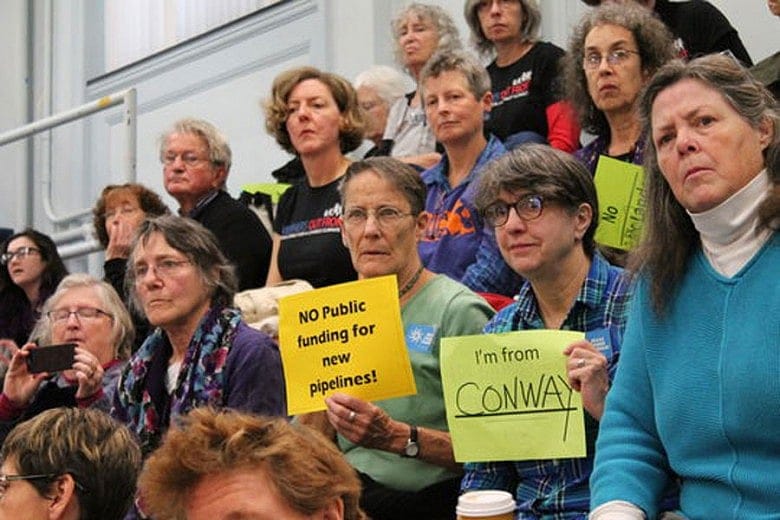Gas pipeline in rural Sandisfield draws strong opposition at hearing

STATE HOUSE — Dozens of Western Massachusetts residents piled into Gardner Auditorium on Tuesday morning to oppose a bill that would allow a subsidiary of Kinder Morgan to extend a gas pipeline in an area of protected conservation land of the rural town of Sandisfield.
Tennessee Gas Pipeline Company LLC, a Kinder Morgan company, is seeking to add a 3.8-mile loop of 36-inch diameter pipe to one of Sandisfield's existing gas pipelines as part of its Connecticut Expansion Project.

